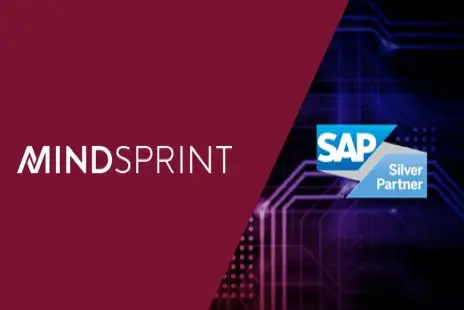
Talent is a company’s greatest asset, and the success of modern businesses significantly depends on adaptability and talent-driven innovation. In this context, the role of strategic Human Resources (HR) is paramount. As we navigate the complexities of the evolving technology industry, the need for visionary HR goes beyond conventional roles. The concept of ‘strategic HR’ is underscored by a growing awareness among company leaders that placing employees at the heart of decision-making enhances their capacity to sustain employee productivity and drive significant business outcomes. Strategic human resources can not only manage change but actively mold it;here’s how.
Aligning human capital with business objectives
As an integral member of the strategic leadership group, HR plays a crucial role in tightly aligning human capital efforts with overall business objectives. A key focus in this alignment is Talent Supply Chain management. Strategic HR leaders excel in identifying key skills, competencies, and cultural fit required to propel the organization forward. They craft recruitment processes that attract individuals not just for their current qualifications but for their potential to contribute to the company's long-term goals. Through targeted learning and upskilling programs in key technologies such as AI/ML, cloud computing, soft skills, and more, as well as leadership development initiatives, HR ensures that the workforce continually evolves to meet the changing business needs. Furthermore, in the realm of performance management, HR must design metrics and evaluation systems that align individual and team goals with the broader organizational objectives. By fostering a culture of accountability and performance excellence, HR ensures that every employee's efforts contribute meaningfully to the overall collective success.
Adopting a strategy that lies in a proactive rather than reactive approach.
In strategic HR planning, the approach shifts from a fixed ‘current state’ to an investigative ‘potential state’ mindset. Unlike conventional HR methodologies, which are often reactive, a strategic HR leader adopts a proactive stance, anticipating opportunities and averting issues before they manifest. Taking a proactive approach involves posing essential questions such as: What are the emerging talent trends? How do we effectively engage with younger demographics, representing the future of the workplace? Are our leaders serving as role models for the workforce? What are the short-term (<12 Months) and long-term goals (>2 years)? What tools do we need to invest in for human capital management that is deeply rooted in business growth? These proactive inquiries are critical to a strategic HR leader's toolkit in steering the organization towards growth.
Creating a culture of sustainable business practices
A global pandemic, the increasing phenomenon of 'quiet quitting,’ and the heightened awareness of social issues and sustainability have compelled HR leaders to focus on an Environment, Social, and Governance (ESG) - centered talent strategy. Today's workforce is drawn to the prospect of making a genuine societal impact and fostering purposeful innovation. Therefore, it is imperative to cultivate a culture geared towards achieving corporate goals while also being sustainable.
When developing sustainability initiatives, it is crucial to consider diverse perspectives, ensuring that the organization's approach to sustainability is equitable and accessible to all people. This involves implementing awareness campaigns, training sessions, incentives for eco-friendly practices, and fostering a collective commitment. Sustainable policies include preserving knowledge assets, transitioning from paper-based transactions to digital systems, and promoting green commuting habits.
In parallel, HR leaders has the ability to directly influence initiatives that contribute positively to the environment and society, such as waste reduction, recycling programs, and energy efficiency. Creating a workplace that employees are proud to be a part of is essential. By weaving together these elements, strategic HR can establish a culture of sustainable business practices that aligns with the ethos of diversity, equity, and inclusion.
At the vanguard of Technological Advancements
HR is strategically positioned at the vanguard, serving as a crucial sensor for emerging technologies and playing a pivotal role in validating them to future-proof the organization. By actively engaging with emerging technologies and understanding their potential impact on talent acquisition, workforce optimization, and employee experience, strategic HR can guide the organization toward embracing innovations that ensure long-term resilience. This proactive stance safeguards the company against potential disruptions and positions it as an agile and forward-thinking entity ready to thrive in the face of technological advancements.
Embracing data-driven innovation
Strategic HR decisions necessitate a foundation rooted in evidence-based practices and a data-driven approach. According to the Gartner 2023 HR Professionals Survey, a substantial 76% of HR leaders emphasized the critical need for implementing generative AI and its pivotal role in their organization's success. This presents a unique opportunity to leverage AI and usher in fresh ideas and innovations capable of transforming all levels - from C-suite to mid-level managers, employees, and even within HR functions. For instance, personalized HR tools can meet the diverse expectations of employees or gauge their sentiments throughout their career journey. Tools with automated workflows can save time, allowing a focus on more nuanced tasks. The evolving AI landscape provides HR with the chance not only to adapt but also to spearhead initiatives, aligning human resources practices with the cutting edge of technological progress.
HR leaders are uniquely positioned to comprehend the key drivers of employee experience and company success. In essence, the value of strategic HR lies in its ability to transcend traditional personnel management. It serves as a strategic partner that directly contributes to creating a people-powered organization where employees are not merely contributors but integral stakeholders in the journey. As companies acknowledge the transformative power of strategic HR, it becomes increasingly clear that investing in the strategic management of human capital is not just a necessity but an imperative for growth, competitiveness, and excellence in the marketplace.



